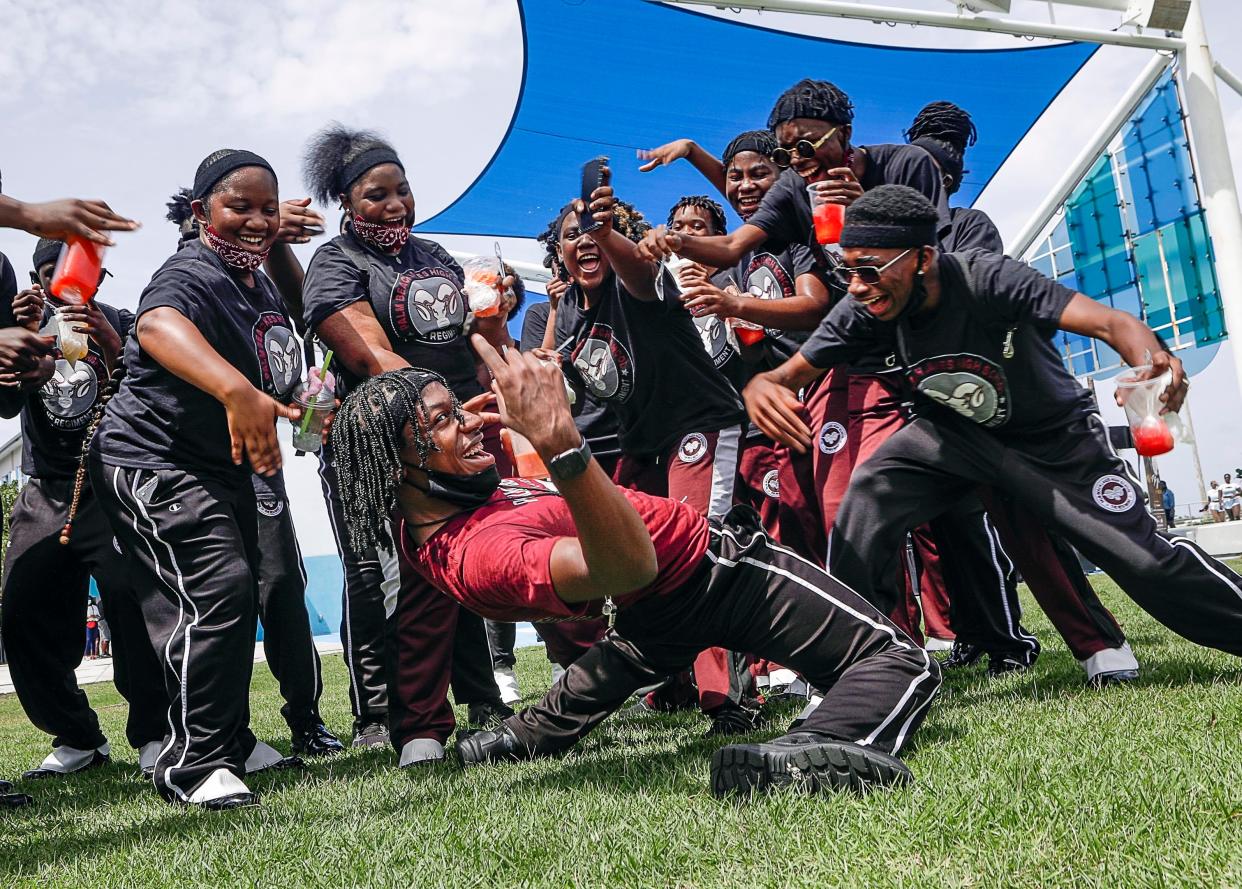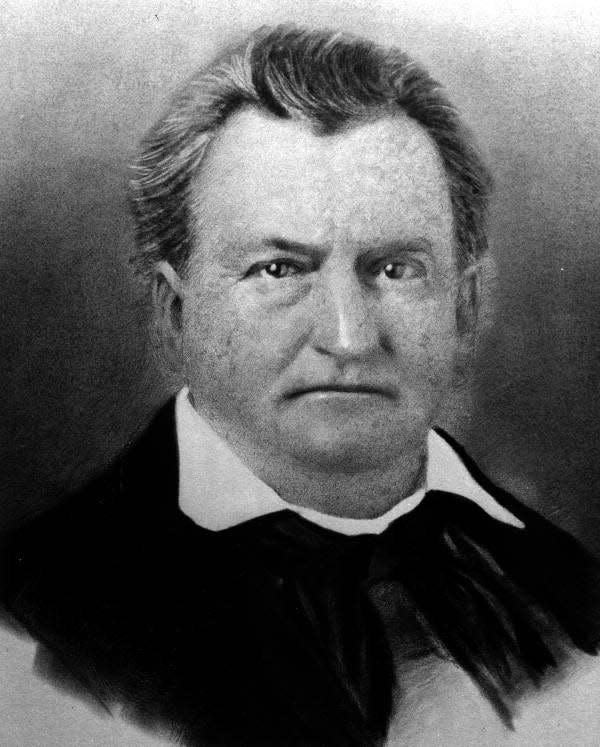Riviera Beach has big plans for this weekend's 'Mayteenth' celebration

Riviera Beach City Councilwoman Shirley Lanier will host a program Saturday commemorating the end of slavery in Florida.
The program, scheduled for 6 p.m. at the Riviera Beach City Library, is expected to feature African drumming, libation, spoken word and musical performances as well as a panel discussion by historians.
Saturday's program comes two years after President Joe Biden signed legislation making Juneteenth a federal holiday. Black Americans have long marked June 19, 1865, the day Union troops told enslaved people in Texas that they were no longer in bondage, as a national day of liberation.
Juneteenth — a combination of the words June and nineteenth — has been celebrated with cookouts, parades and family gatherings, all commemorating liberation from slavery.
What happened in Florida on May 20, 1865?
But emancipation came a month earlier for Black Floridians.
On May 20, 1865, Brig. Gen. Edward McCook read Abraham Lincoln's Emancipation Proclamation in Tallahassee, and his troops raised the U.S. flag over the state Capitol building.
In practical terms, slavery in Florida was over, though the final stake wasn't driven through its heart until the ratification of the 13th Amendment to the U.S. Constitution in December 1865.

Some refer to May 20 in Florida as "Mayteenth," a nod to the better known June 19 holiday.
In many ways, McCook was a fitting choice for the reading of the Emancipation Proclamation. His troops had routed Confederates in Alabama and Georgia, and they blasted the rebel cavalry of Nathan Bedford Forrest, the Confederate general who would later go on to become the first grand wizard of the Ku Klux Klan.
New laws in 1821 brought slavery to Florida
Perhaps because most of the famous battles of the Civil War — Gettysburg, Bull Run, Antietam, Chancellorsville — were fought outside of Florida, the Sunshine State's role in the war and its adherence to the slave system that led to it are sometimes unrecognized.
Slave-holding Southern states backed the U.S. purchase of Florida from Spain in 1819 in large part as a way to cement slavery in this country. Runaway slaves would no longer be able to escape by somehow making it to Florida.
After Florida became a U.S. territory in 1821, a series of new laws designated Black Floridians as inferior to white people and suitable only as slaves.
In DeSantis' Florida, Black residents sicker, poorer, less educated. It's getting worse.
Many Black Floridians fled the state for Cuba and the Bahamas. Free Black Americans were not allowed to enter Florida.
"Southerners came to believe that the only successful means of removing the threat of free Negroes was to expel them from the southern states or to change their status from free persons to slaves," historian Julia Floyd Smith wrote in 1973's "Slavery and Plantation Growth in Antebellum Florida 1821-1860."
Freedmen in Florida, Smith wrote, were seen as "an evil of no ordinary magnitude."
Descendants of Rosewood Massacre survivors say their relatives were forever marked
As it did in other Southern states, slavery took root in Florida, where large cotton and sugar plantations provided bounty for whites at the often deadly expense of Black slaves.
By 1860, nearly half of Florida's residents were Black slaves.
When Southern states pulled out of the Union in the early 1860s, Florida joined them, aiming to preserve slavery.
Florida's Civil War-era leaders did not easily let go of slavery
The state's governor, John Milton, killed himself rather than see Florida reintegrated into a Union shorn of slavery. He had hinted at just such an action during his final address to the state Legislature, when he blasted Union military leaders as having a character "so odious that death would be preferable to reunion with them."

Milton's son found him dead of a gunshot wound to the head on April 1, 1865, eight days before Confederate Gen. Robert E. Lee surrendered to Union Gen. Ulysses S. Grant.
Milton did not live to see Black Union troops march into Tallahassee and reclaim Florida for the Union.
That history is part of why programs like the one on Saturday is so important, Lanier said.
Precisely what Florida students are permitted to learn about the history of the state and the country is part of an intense political discussion in the Sunshine State.
West Palm program to waive COVID relief loans a big boost for minority-owned businesses
Gov. Ron DeSantis and other Republican elected officials have objected to some historic curricula, complaining that it paints a harsh picture of the country and aims to make white people feel guilty about long-ago wrongs.
Meanwhile, the governor signed into law a bill making it a felony to damage historic property, including statues honoring those who fought in the Confederacy to preserve slavery.
Lanier alluded to the current climate in stressing the importance of remembering emancipation in Florida.
"Mayteenth is a time for us to come together as a community and celebrate our shared history, honoring the resilience of African Americans," she said. "It is crucial that we acknowledge the ongoing 160-year struggle for liberation in a society where barriers against the advancement of Black, Brown, and allied communities of struggle continue to increase."
Wayne Washington is a journalist covering West Palm Beach, Riviera Beach and race relations at The Palm Beach Post. You can reach him at wwashington@pbpost.com and follow him on Twitter @waynewashpbpost. Help support our work; subscribe today.
This article originally appeared on Palm Beach Post: 'Mayteenth' will honor liberation of slavery of Black Floridians

